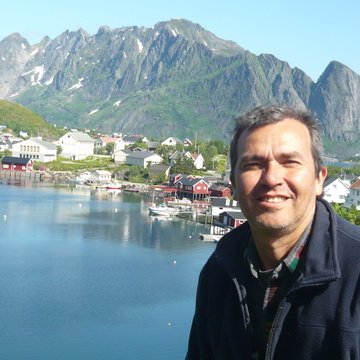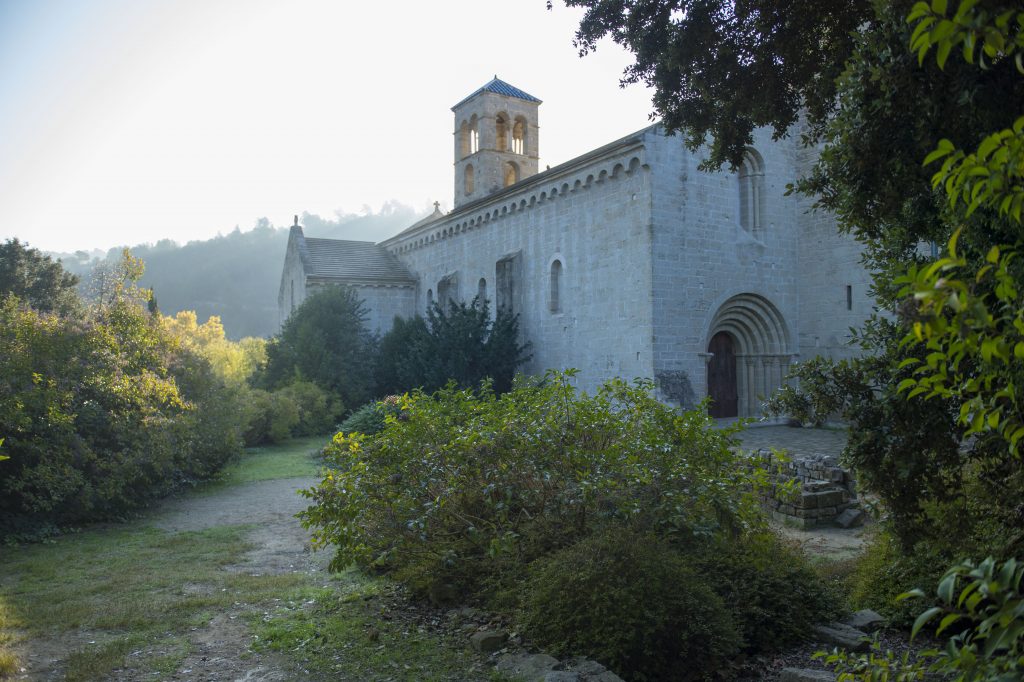Most relevant to Claudio’s experience on the QLF exchange is the dynamic between collaboration and communication, the important drivers of successful conservation. He realized the power of collective thinking and the importance of combining different perspectives, recognizing that QLF has expertise in the culmination of knowledge from locals and experts across the globe. He appreciates QLF for having an appreciation for community-based conservation, integrating the needs of community, culture and conservation.
QLF Experiences
Conservation Exchange: Land Management and Stewardship on Protected Areas, 1997
Alumni Congress, Barcelona, Catalonia, 2016
 Meet Claudio Madaune, a geographer and a permaculturist who resides in San Rafael, Colombia. Claudio works at the grassroots level for conservation and sustainable development. During the third year of Claudio’s studies in geography at the Pontifical Catholic University of Chile in 1985, the growing civilian opposition against the Chilean dictatorship intensified. Claudio left his home country as a refugee and transferred to Paris 8 University for the next two years, pursuing a Master’s in Geography. Upon graduating, Claudio moved to Oslo, Norway, working as a shipbroker and consultant. He then discovered the concept of permaculture, which uses ecological models to integrate human activity into natural ecosystems for sustainability. The practice of permaculture piqued Claudio’s curiosity for alternative environmental, cultural, political, social, and technical approaches to living, and that dramatically altered his career.
Meet Claudio Madaune, a geographer and a permaculturist who resides in San Rafael, Colombia. Claudio works at the grassroots level for conservation and sustainable development. During the third year of Claudio’s studies in geography at the Pontifical Catholic University of Chile in 1985, the growing civilian opposition against the Chilean dictatorship intensified. Claudio left his home country as a refugee and transferred to Paris 8 University for the next two years, pursuing a Master’s in Geography. Upon graduating, Claudio moved to Oslo, Norway, working as a shipbroker and consultant. He then discovered the concept of permaculture, which uses ecological models to integrate human activity into natural ecosystems for sustainability. The practice of permaculture piqued Claudio’s curiosity for alternative environmental, cultural, political, social, and technical approaches to living, and that dramatically altered his career.
In Colombia and several other countries, Claudio has taught extensively permaculture design and conservation, identifying ways in which economic incentives outweigh conservation measures. Claudio further explored options for stakeholders that consist of conservation innovation and protective measures. Shortly after Claudio completed his training, he was contacted by the Quebec-Labrador Foundation to participate in the 1997 Conservation Exchange on Land Management and Stewardship on Protected Areas. Claudio attended as a member of the Darien Foundation, which is headquarted at the Sasardí Integrated Reserve, and Ecovillage, located in the Darien rainforest at the Choco Biogeographic region, which has the largest biodiversity worldwide. Based in Colombia, both organizations promote the practice of permaculture through fostering sustainable living in regenerative villages.
Claudio has also been very active at the Ecovillage Network of the Americas, and an ambassador of the Global Ecovillage Network for Europe and Latin America. He participated as well at CASA (Council of Sustainable Settlements of the Americas) and Transition Movement, both organizations promoting the practice of permaculture through fostering sustainable living in regenerative villages and sites.
Most relevant to his experience on the exchange is the dynamic between collaboration and communication, the important drivers of successful conservation. He realized the power of collective thinking and the importance of combining different perspectives, recognizing that QLF has expertise in the culmination of knowledge from locals and experts across the globe. He appreciates QLF for having an appreciation for community-based conservation, integrating the needs of community, culture and conservation.
“Most of the people who work in conservation, especially biologists, have become very specialized without really looking at the whole.” Claudio returned to Colombia after participating in the QLF exchange program, dedicating his life since then to informal education at the grassroots level and the empowerment of local communities to become self-sufficient and to develop themselves in a sustainable way. He taught courses in geography, permaculture design, sustainability, and practical tools for a better life, with a larger and integrated perspective about environmental issues at schools and community centers in various countries.
Next, Claudio established Change the World in Norway, an organization devoted to promoting sustainable development through a grassroots approach. Co-founder of Change the World, Claudio introduced community-based conservation initiatives from the Americas to Scandinavia and Africa. After a decade in Norway, Claudio returned to South America with his family. While they aren’t living ‘in the jungle,’ they live in the middle of a forest with great biodiversity in a natural landscape. With a home almost exclusively made from wood, natural and recycled and sustainable materials, they promote green practices in their community by leading by example.
One particularly intriguing aspect of Claudio’s lifestyle is the holistic and integrated vision that he has. He works with his family to produce a good amount of food on their own and he encourages others to do the same, even those who live in urban areas. For those living in cities where conventional agriculture is not an option, Claudio recommends different techniques that allow vegetables to be grown indoors: “You have to look for alternatives, because in the city you don’t have big areas of land where you can produce.” Although Claudio acknowledges that not everyone can attain 100% self-sufficiency, he recognizes the impact that all efforts have towards sustainability, both large and small. “If you can reach 20-30-40% [self-sufficiency], that’s a lot.”
During Claudio’s time with QLF, he saw the value in combining the perspectives of individuals from various backgrounds for the sake of environmental preservation, witnessing the fruitful outcomes of collaborations between many people with different occupations and nationalities. When it comes to the future of the planet, everyone can make a difference. Claudio aspires to continue promoting eco-friendly living alternatives and sharing his enthusiasm for self-sustainability with the rural communities and neighborhoods of Colombia and worldwide.







